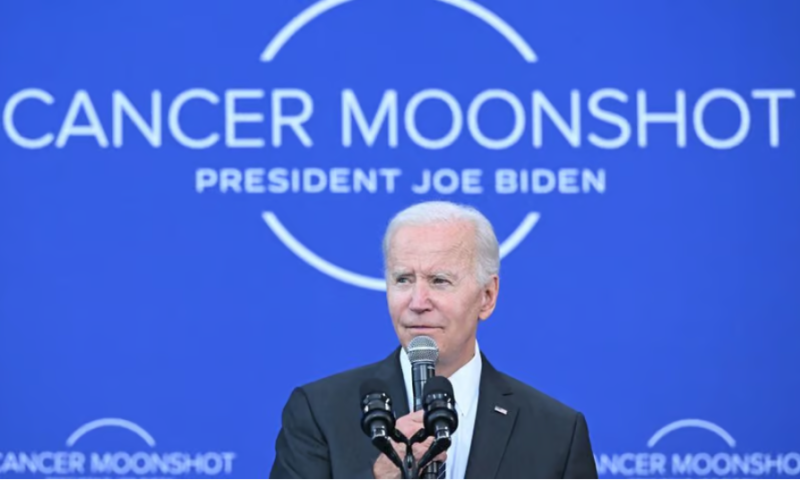It’s been a year since the White House revived the Cancer Moonshot program, one of President Joe Biden’s signature initiatives during his time as vice president in the Obama administration. Now, the ambitious effort has announced a new series of actions to help commemorate its anniversary.
With the stated goal of “ultimately ending cancer as we know it today,” the project aims to help cut the death rate from cancer by at least half before 2047, or just within 25 years. First launched in 2016 with $1.8 billion in research funding, its second incarnation kicked off last year with plans for a Cancer Cabinet made up of scientific leaders across the government to establish and track the project’s research agenda.
According to the White House, that cabinet has held “more than 50 community conversations and events” in the time since, while over 60 private companies, nonprofits, academic institutions and patient groups have signed up for collaborations or other work.
Some of the actions spotlighted this week include team-ups with medtech companies and foundations aimed at increasing the reach of cancer screening across the U.S. population—as well as ways to detect tumors earlier and quickly direct patients to the proper treatments using technologies such as artificial intelligence. Additional efforts include partnerships to provide patient navigation support and pediatric cancer research, among others.
Siemens Healthineers signed on to provide its second mammography screening truck to the effort, including dedicated staff to perform scans and AI programs to help read the results. A previous mobile unit helped perform 680 free 3D screenings in Pennsylvania and North Carolina; the second truck is slated to partner with health systems on 10 to 12 additional mobile screening events this year, with the goal of reaching at least 2,000 women in underserved urban and rural areas.
At the same time, the National Minority Quality Forum will work to launch localized cancer screening events in at-risk communities. The nonprofit aims to raise awareness about cancer disparities as well as innovations in early detection and treatment. Meanwhile, the Prevent Cancer Foundation will launch an early detection campaign to urge people to schedule appointments and complete recommended cancer screenings.
Elsewhere, AI developer Owkin will work with the American Society of Clinical Oncology (ASCO) and its CancerLinQ database on a research collaboration focused on improving outcomes in metastatic non-small cell lung cancer. By scanning health records, ASCO and the former Fierce 15 winner plan to explore why some immunotherapy treatments fail to provide benefits in some patients.
And at the Department of Health and Human Services (HHS), the government is launching CancerX, a public-private partnership hosting an accelerator initiative for biotech and medtech startups that will aim to develop digital solutions to support and coordinate cancer care. The work will follow the same model as HHS’ previous KidneyX and PandemicX innovation programs.

